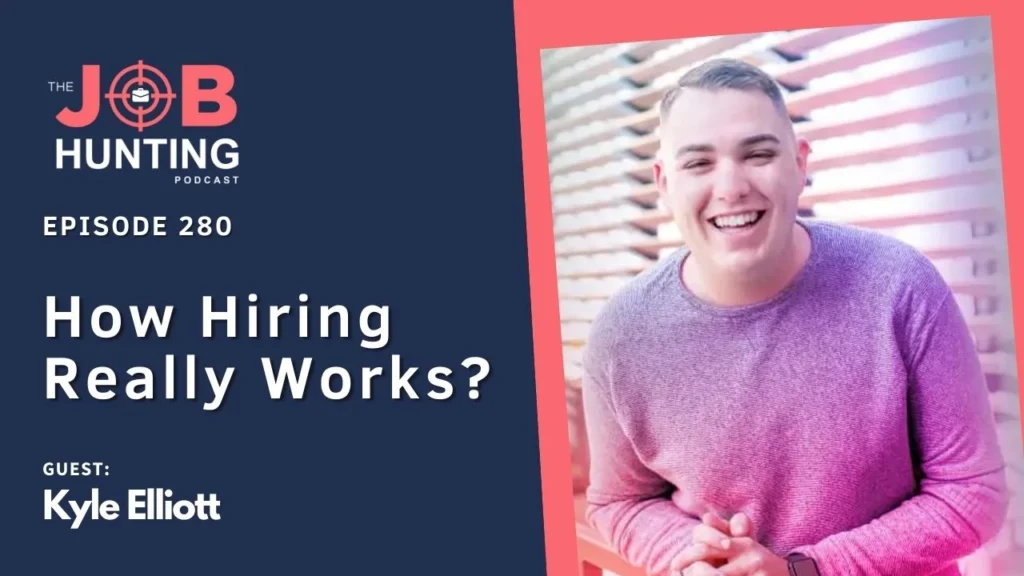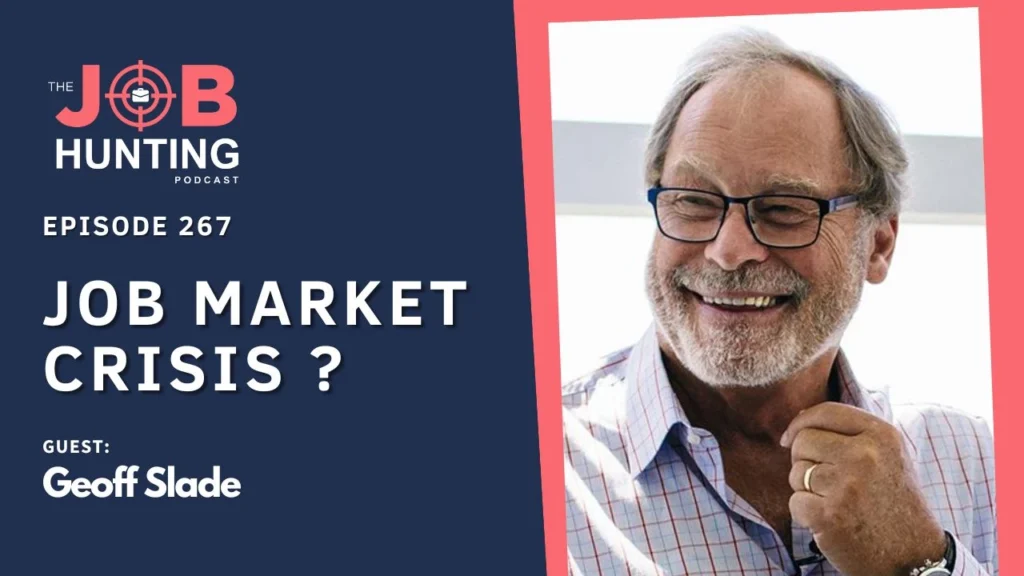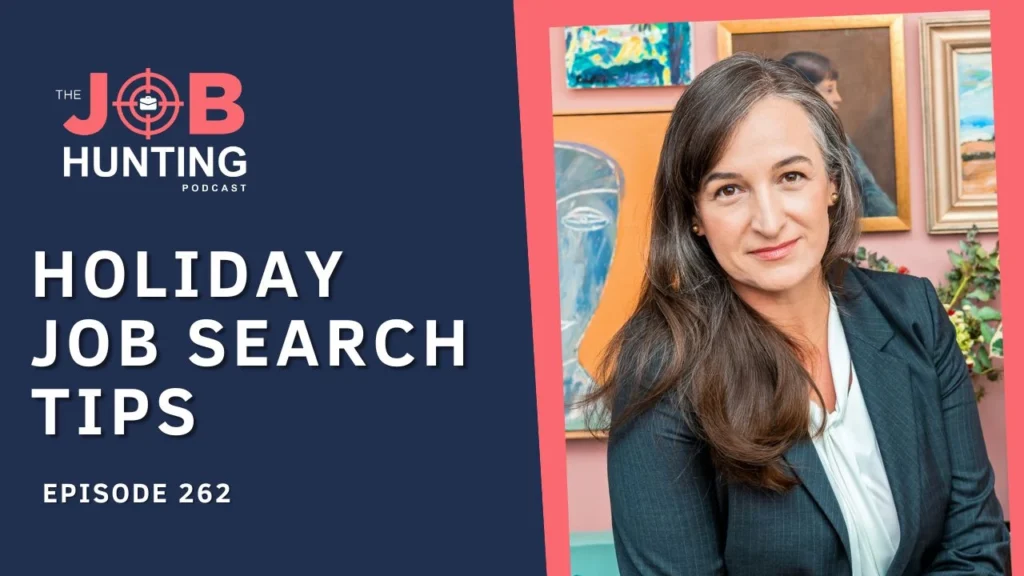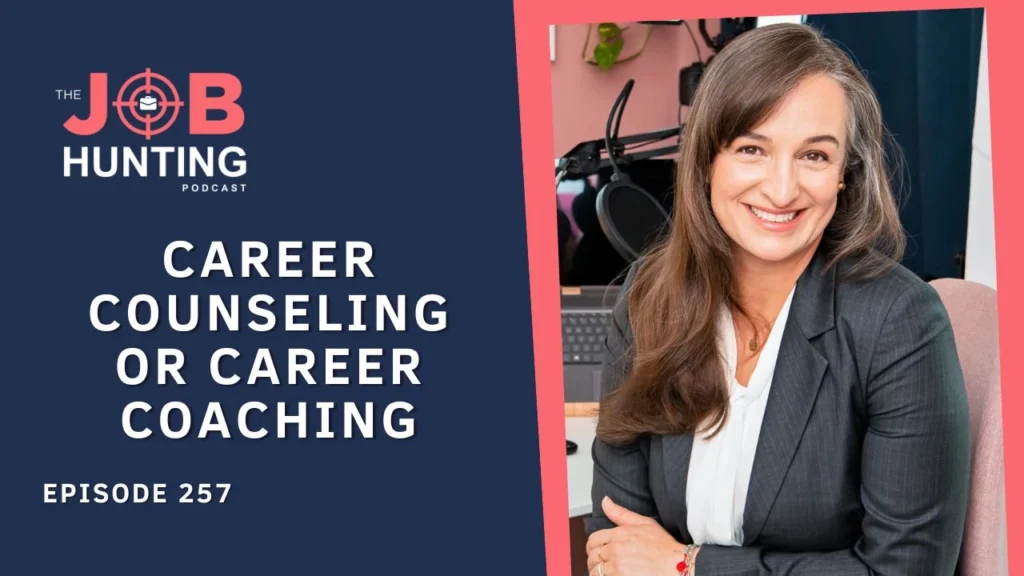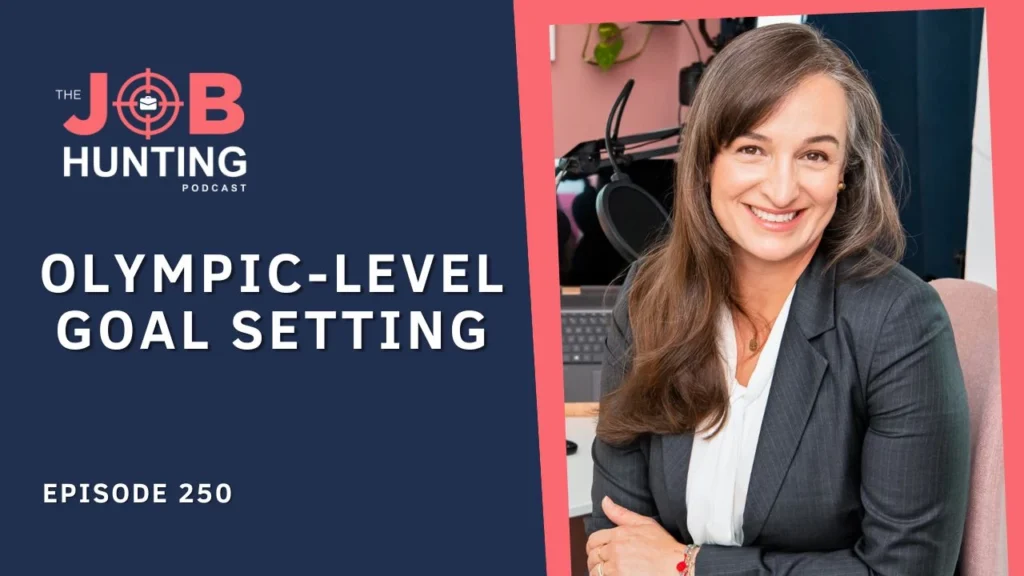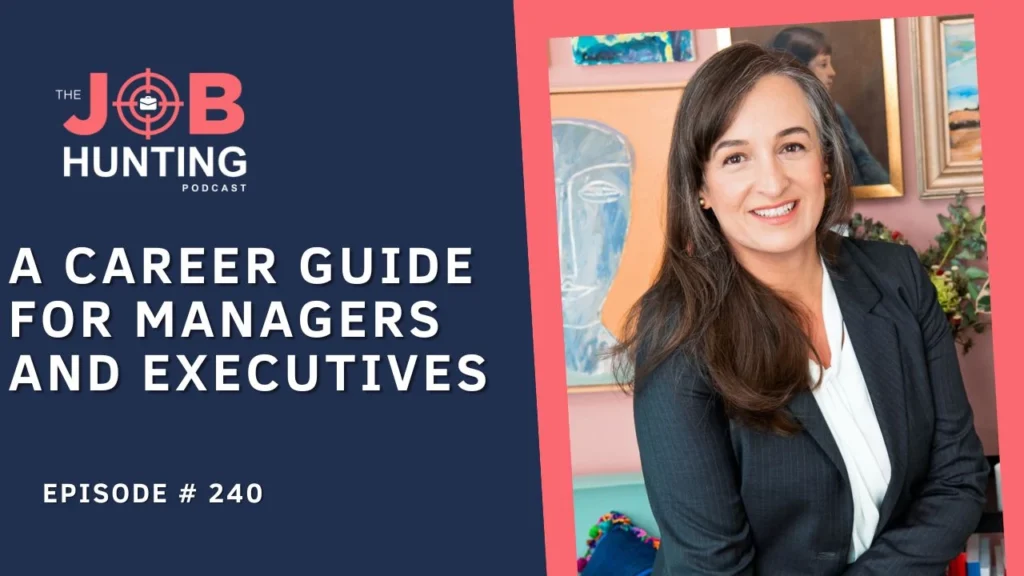Renata (00:00)
As I record this episode, I see lots of posts on LinkedIn and other social media platforms on how to job search and how to have the perfect job search strategy. I came across a post that is a great example of this myth. It was from someone who landed their job in just 30 days and their approach was to apply for 50 jobs a day, network relentlessly and tailor every resume.
the jobs that they were applying for. I thought it looked too impressive to be true and kind of crazy and I don’t think that that is the only simple clear path to success as the post said. I think that there are other ways that you can do this.
Renata (01:10)
I did some digging and what they did not mention in the post is this.
That person went to an Ivy League university with access to a big network of CEOs, hiring managers, and that can really help them speed up the process of getting a job. They also had decades of experience in top tier companies. They were not juggling as far as I could tell, childcare, side gigs, and other things that can really get in the way of you job searching so intensely.
It’s not that the story was false, it just it was incomplete, right? There are things that we don’t talk about either because we don’t see them as privilege or they don’t make us look good, we don’t talk about failures along the way when we’re talking about our brand new job and how happy we are and I think it’s important to bring us back to reality and this is the reason why I decided to record this episode for you.
So why am I talking about hidden stories behind job search success? It’s because I think it’s really important for you to look below the surface and check out what’s really happening in everybody’s job search strategy and how difficult and challenging it is for most of us.
When you hear about someone lending a great job, the advice often is about, you know, you have to remember to negotiate your salary or if you just network and ask, you will find the hidden opportunities in the hidden market. I read this all the time on LinkedIn. Also, you say, you know, people say apply to jobs you’re not qualified for and take risks. gosh. I mean,
That is not true. And sometimes these strategies work, but that’s like an exception to the rule. Often people succeed because of factors we don’t see. You know, if they got a job in an area that they didn’t know anything about, it was probably because they had network that supported them in that transition. The financial
also that allows people to take a few months off to network full-time is not something that everybody can do. And then we have mentors, know, people that have mentors who make key introductions behind the scenes. You may not see that happening, that can speed up a recruitment and selection process as well. A previous role at a prestigious school
company, if you have had that, that opens doors for you as well. I’m not saying that these stories are lies that people are telling about how they got their jobs. And I’m also not saying that if you’re not from an Ivy league and you don’t have, you know, a blue chip company in your resume, you’re not going to get a job. I think that we all need to identify our strengths and leverage them as much as possible.
and not be so caught up about how others got their jobs. The stories that we hear on LinkedIn and from other people, whichever way you’re hearing them, they’re often incomplete. And if you follow it blindly without understanding the full picture, the context and how the ecosystem works in order to allow you to get a role, it can lead you to frustration and it can lead you to burnout.
and to not build yourself the correct framework, the time frame for you to get your role.
because somebody that got a job in 30 days did a lot of work beforehand in order for that to happen so quickly and we haven’t seen that.
So what’s the real cost of job search advice of selective job search advice that we find on LinkedIn, on Instagram, even TikTok. It can be very costly if you get advice from different sources and they are not the real way people actually get jobs. For every person who quit their job without a safety net.
They trusted their gut and they landed their dream role. Right? This is like, like winning the lottery. For every story like that, there are hundreds of people who tried the same thing and failed. So this idea, this romantic idea of quitting the job and then looking for work for 30 days and then finding this amazing opportunity.
that’s near impossible to happen to anybody even with a career coach. So the stories that are true, the stories that are challenging and require a lot of effort and time, those stories they don’t go viral, they don’t become an Instagram post, they don’t get shared on LinkedIn the way that they should, it’s very rare.
When they have been, I actually have invited these people to be on the podcast and share their stories with me. And I will put the link below to a specific one that I’m thinking of right now that I think you should listen because it came to me because the post was so frank and honest about how hard it had been to look for work.
So it leaves everybody wondering what’s wrong with me? Because when you see people announcing their new roles or giving out advice about how to get jobs, their strategy doesn’t work for you and then you think that there’s something wrong with you.
But let me tell you something, it is not you. There is nothing wrong with you. You are an excellent professional. have lots of talents and strengths and things that you can leverage from your career to get your new job. The problem is the advice that you’re getting. And it’s not the advice is wrong or malicious. It’s just that the advice is not right for your situation.
So, okay, what does work in job search? What actually works when you’re looking for work? That’s what we need to find out. Now, yes, I like to think that things that I’m saying work. So, find a good mentor or a coach and follow them and be careful not to sort of follow three different people saying different things. Find one that resonates with you. This is really important.
But most importantly, what should you do instead of scrolling through LinkedIn, looking at how other people’s careers are moving forward and yours isn’t? That’s not going to help you. I want you to do something else instead. I want you to cut through all of this noise and find an approach that works for you. Okay? I talk about patterns all the time with my client.
Let’s look at the patterns of success, everything that has worked for you. Let’s not look at individual stories. Most importantly, let’s not look at your past and see all the things that didn’t work. I hear that from clients a lot as well. And I’m like, okay, we need to kind of kickstart from fresh, a fresh start. need to kickstart from ground zero. Okay. And we need to think about go inside.
and look, do a lot of navel gazing and look at us, look at what we really want to do. And we cannot look at our past recruitment and selection process and searches that didn’t go well and just think because it didn’t go well, it will never go well again. Okay. I’ll give you an example of what I mean by that. If you have applied for a job and got through to the call.
for a job that you really wanted, you know that your application did well that day. You need to go back to that exact application and review it and understand why that application got you that call, even if you did not go forward from the call to an interview, from the interview to a job offer. Okay? That is the first pattern of success. If you have gone through interviews,
and you got through to the final rounds, you know that you did well in the interviews. That is a pattern of success. So you know that you have nailed it. Why did you nail it? So you need to look for those common threads across multiple success stories of yours. What are the principles or tactics that keep coming up, regardless of the fact that you didn’t get the job in the end?
Okay, so I know you didn’t get the job in the end. That’s why you’re listening to this episode. But what did work well? You know, did they find you on LinkedIn for jobs that you really wanted? That is already a pattern. So you know that whenever there is a job like that, that the recruiter will most likely find you again. Other recruiters may find you again.
So be very strategic at analyzing the patterns of success. Also, let’s talk about networking. Strategic networking is almost always a key factor in you getting a role. Okay? If you’ve listened to episodes with recruiters here, you may have noticed that they have expectations of how you will engage with them.
especially for more senior roles. Okay? So I know that if you’re listening to this and you’re a graduate or if you’re a professional who is not in a leadership role, you may not even know who the recruiter is. I get that. But if you’re listening and you know somebody in the company, you know who is going to be your manager or your colleague or who works in HR or who the recruiter is. Before you send the application, you should get in touch with them.
and let them know that you are applying. And if you have good questions for them, questions about the role, about the company, about the team, questions that are short and that just make you want to listen to what they have to say, that will help you write a better COVA letter or online job application. That is really important. That’s a strategic way of applying for jobs.
And it, whatever you decide to do in whichever way you move forward with your job application and leveraging from whatever network you have or things you’ve done in your career that are great in great alignment with the role. Those will be different for somebody else. They might be even different to another person applying for that role. And that’s normal and that’s completely okay. So when you are.
recruiting for an important role and most roles are important for the organizations you want to showcase to the decision maker a range of candidates that they can choose from right so what looks like something perfect and great for you might be different for somebody else and if they choose somebody else and not you that’s totally fine you move on there’s nothing wrong with you you’ve nailed
certain aspects of the recruitment process and you still have a few things that you need to learn in order to showcase the benefit of hiring you instead of somebody else and we need to work on those things and hone them make them even better so that you apply for the next role with a better more complete set of strengths to showcase okay
So what I guess what I’m saying here is yes, let’s pay attention to the patterns of success and then let’s pay attention to what didn’t work. Let’s pay attention to failures. Now we don’t usually talk about failures. We don’t want to think about them. We don’t read about them on LinkedIn. Okay. And even if we do read about failures on LinkedIn, it’s very hygienic, but
People who faced challenges in their job search, knowing what didn’t work for them and why is so beneficial to you. When I say here on the podcast or when I’m having meetings with prospect clients and I tell them, don’t wait until you’re desperate to hire me, hire me before you get desperate. I say this because that’s…
something that I know time and time again happens. I mentioned this in my latest episode as well. Somebody who waited 10 months or 12 months, I can’t remember now, before they hired me and lost all that income, right? So you don’t want to reach that stage because by then you may not even have the energy or the money to pay for career support. So that’s just one example, but there are many people that may
open up and be quite honest with you and say look it took me twice as long as I thought it would to get my job. Don’t be overly optimistic and think well that’s not gonna happen to me. No, listen to them, pay attention to what they’re saying and take that into account. If they are vulnerable enough to share with you something that important, it’s important for you to learn.
We have been good at this in the past. We know that we should not touch fire. Otherwise we will get burned. Right? So we are good at learning vicariously through others, but for some reason, our ego sometimes does not allow us to do that. Especially when it comes to job search. We think that for us, it will be different. And it’s not, we need to understand that the people that are sharing that information with you, they have your best interest in mind.
So pay attention to them and consider those things. Use your intuition to consider what’s really going to be a risk factor in your job search strategy compared to theirs. Understanding the pitfalls can help you avoid them. Okay? So from previous job searches that you have done and for the ones in the future.
then I think it’s also a great thing to acknowledge your unique circumstance, your situation. What is your starting point in this job search? Are you starting a job search with savings that you can fall back on? Do you have family that could support you? Do you need to secure an income quickly? You know?
The reason why I’m mentioning this is because as a coach working with clients, this is something that I really need to know and I need to know the truth. And sometimes I feel like my clients are not telling me the truth and that doesn’t help me help them, right? There needs to be that trust in the relationship where I know what’s going on with their finances, even though I’m not going to give them financial advice. That’s not
the point but I will understand their level of urgency and what they’re willing to compromise or not compromise so for example if you are looking for a job and you need to convert really quickly you might want to compromise sector location status type of organization because you just need to pay the bills next month whereas if you have
savings then it’s okay to use that privilege and take time to find an organization that’s more aligned with your values and purpose or closer to home or has flexible employment etc. So this is a really important thing for you to consider if you’re working on your own or if you’re working with a coach to let them know so that they can help you.
Are you transitioning industries? Are you climbing within the same field? This makes a huge difference for you and for your culture as well. So if you are transitioning industries, there is usually more of a lag time between you looking for work and you getting a job, right? There’s more work that you need to do to translate your narrative to a new culture.
to a new industry, to a new clique of people. It may take even longer, you know, if it is an industry that you’re coming out of that has a negative bias in the market, or if you’re moving into a new industry or a new area of expertise that will require you to upskill and reskill and talk about things in a different way. For example.
If you are in finance and you decided that now you want to work with ESG, yes, you can do that, but you may need to change the way that you think about finance in the corporate world and how you frame it and how you present it and even the sort of words and methods that you use. It may be that you might need to.
up skill because you’ll be competing with people that have ESG in their career DNA from the get-go. So for that reason it’s important to think about how long do you have and do you want to do that whilst you are employed because that’s one way of doing a transition, side hustling it or if you are unemployed can you withstand that longer transition if you’re changing sectors
industries or making a complete career change right these factors they really do matter
And then remembering that even if you did not go to an Ivy League university or you have no network because you are, you know, in a new country, it doesn’t matter. You have your own advantages that you need to leverage. And sometimes they may not look like advantages to you. This happens to my clients all the time that I have to point out to them.
that there are things that they are not talking about. Sometimes they are even sort of hiding away because they don’t think of those things as leverages. So for example, if they have worked in certain countries like Singapore, China or India, you know, that can be incredibly advantageous for specific professions. If you have…
changed from one industry to another. So if you had been an accountant, know, a CPA qualified accountant or a chartered accountant, if you’re in Australia or the UK and you are now in operations, that financial nails that you have from your accounting background, why aren’t you leveraging from that? So maybe you don’t have the advantages that somebody else you’re looking at on LinkedIn have.
but you have your expertise, your strengths, your talents, maybe even your network and you are not going to put yourself down for not having what other people have. You need to bring your strengths up and showcase them, bring them up to the surface so that people will see why they should be hiring you.
and why those strengths of yours are important to help them run their businesses. Remember your strengths might not look like someone else’s strengths but they are extremely valuable for the right job and the right employer.
Now this episode was hard to record. I’m not sure that I got the point across as much as I wanted to, but this is a conversation, know, my weekly conversations with you of things that I see coming up as they happen. you know, we’re recording this middle of February. There are lots of job posts of people telling you how to look for work. And the point of this episode is to encourage you into
give you the advice to not give up, the advice to help you be more thoughtful and strategic about your own personal history so that you can apply that to your job search. People have great dreams in January and then they kind of get into a rut in February and that’s why so many people want new jobs at the beginning of the year and then at the end of the year.
Most of them don’t have it. I don’t want you to be that person. I want you to get your advantages and your successes and your tools in your tool set and use them and play it well in the job search. Okay. Whatever that may be, play it well in your job search. And the next time you hear a success story that makes you feel inadequate or feel that you’re falling behind, remember.
you are seeing the highlight reel of somebody else’s life, not the behind the scenes. Your job isn’t to copy someone else’s journey, it’s to create your own. You can be inspired by their journeys, but I want you to dig deeper and identify the things that may have contributed to their success and then look at your own background and find the things that can contribute
to your success.
think that’s the message for this week’s episode. And just to finalize, I want to invite you to have a look at Job Hunting Made Simple, because if you’ve been inspired by today’s episode and you feel like there’s just so much more you need to learn about how recruitment and selection works and how you can look for a job, but more importantly, take control of your career from this point on point onwards, then maybe
working with a career coach like myself can be really helpful. I want job search to be made simple. I know it’s not going to be easy and there is hard work to be done. But if you work with me, at least you know what you need to do and when and the invitation is there for you to have a look and learn more about job hunting made simple. The enrollment is currently available and open for you if you’re listening to this.
February, very early March and this program is designed to help you really cut through the noise. Too much information out there can be confusing and overwhelming. I want you to understand your unique strength, your circumstances and develop that customized career strategy that will help you and your job search now and in the future. So to learn more once again
go to my website it’s renatabernardi.com R E N A T A B E R N A R D E dot com forward slash J H S there’s a link to it in the episode show notes bye for now I hope that you enjoy this episode now that has resonated with you if it has just send me a note on any of my social platforms linkedin is preferable but wherever you are
send me a note or better still if you’re a subscriber and you got the newsletter just reply back and let me know that you’ve enjoyed this episode let me know of any other topics you would like me to discuss in the future as well it really helps me plan my episodes bye for now see you next time


